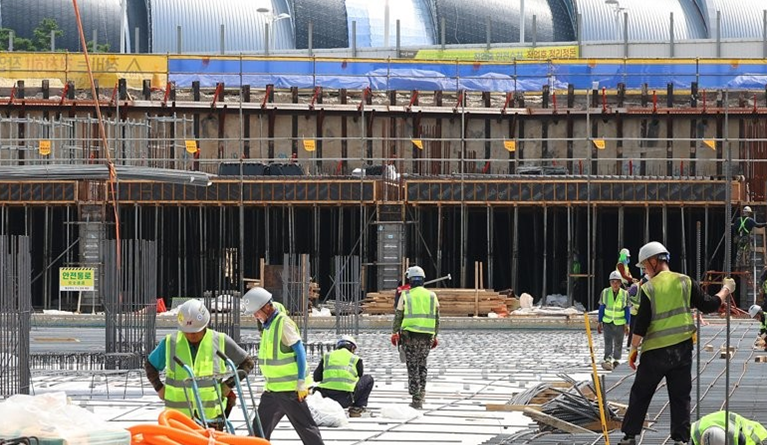
Seoul, South Korea – A recent report by the Construction Workers Mutual Aid Association (CWMAA) has shed light on the significant demographic of foreign workers within South Korea's construction industry. The "Construction Site Report," released on May 20th, reveals that out of approximately 230,000 foreign construction workers identified last year, a striking 84% are Korean-Chinese, often referred to as Joseonjok. This data underscores a pronounced reliance on this specific demographic for manual labor in the nation's construction sector.
According to the CWMAA's analysis of foreign construction workers enrolled in retirement savings plans, 229,541 foreign nationals were employed in the domestic construction industry last year, constituting 14.7% of the total construction workforce. Among those whose nationality and visa status were confirmed, Korean-Chinese individuals accounted for the largest share at 83.7%. This was followed by other Chinese nationals (excluding Korean-Chinese) at 5.9%, Vietnamese workers at 2.2%, and Korean-Russians (Koryo-saram) at 1.7%.
Visa Discrepancies and Demographic Trends
A significant portion of these foreign workers, 50.4%, hold an F-4 visa, categorized as an Overseas Korean visa. This visa is granted to foreign nationals who were once Republic of Korea citizens or whose parents or grandparents held Korean nationality. The CWMAA's research center highlighted a notable discrepancy, stating, "Despite F-4 visas typically not permitting employment in simple labor jobs, a large number of workers with this visa are employed on construction sites. This illustrates a gap between the regulations and the reality on the ground." This observation suggests a potential loophole or a pragmatic adaptation to the labor demands of the construction industry.
The report also provided insights into the general demographics of foreign construction workers. Their average age upon entering the workforce was 42.5 years, 3.2 years younger than their South Korean counterparts (45.7 years). Furthermore, a significant concentration of these workers was found in the Seoul metropolitan area, with over 66% employed in this region, indicating a pronounced geographical clustering. Gyeonggi Province alone accounted for 38.3% of foreign workers, with Seoul at 18.5% and Incheon at 9.6%, bringing the total for the capital region to 66.4%.
Predominance in Manual Labor and Retirement Benefits
When examining specific construction occupations, the "ordinary laborer" category was the most common, employing 26,310 foreign workers, representing 23% of the foreign workforce. These are individuals engaged in simple physical labor without requiring specialized technical skills.
The average length of service for foreign construction workers was 5 years and 3 months, approximately two years shorter than the average for South Korean workers (7 years and 2 months). Despite the shorter tenure, the average retirement savings payout received by foreign workers was approximately 4.01 million KRW, which is about 600,000 KRW higher than the average 3.46 million KRW received by South Korean workers. This discrepancy is likely attributed to the clearer and more definite timing for foreign workers to claim their retirement savings, often tied to visa expiration or departure from the country.
The CWMAA's report underscores the vital, albeit often overlooked, role of foreign workers, particularly the Korean-Chinese community, in sustaining South Korea's construction industry. It also brings to light the complexities of visa regulations and their practical application in the labor market, prompting further discussion on policy adjustments to better align with the realities of the construction sector.
[Copyright (c) Global Economic Times. All Rights Reserved.]






























